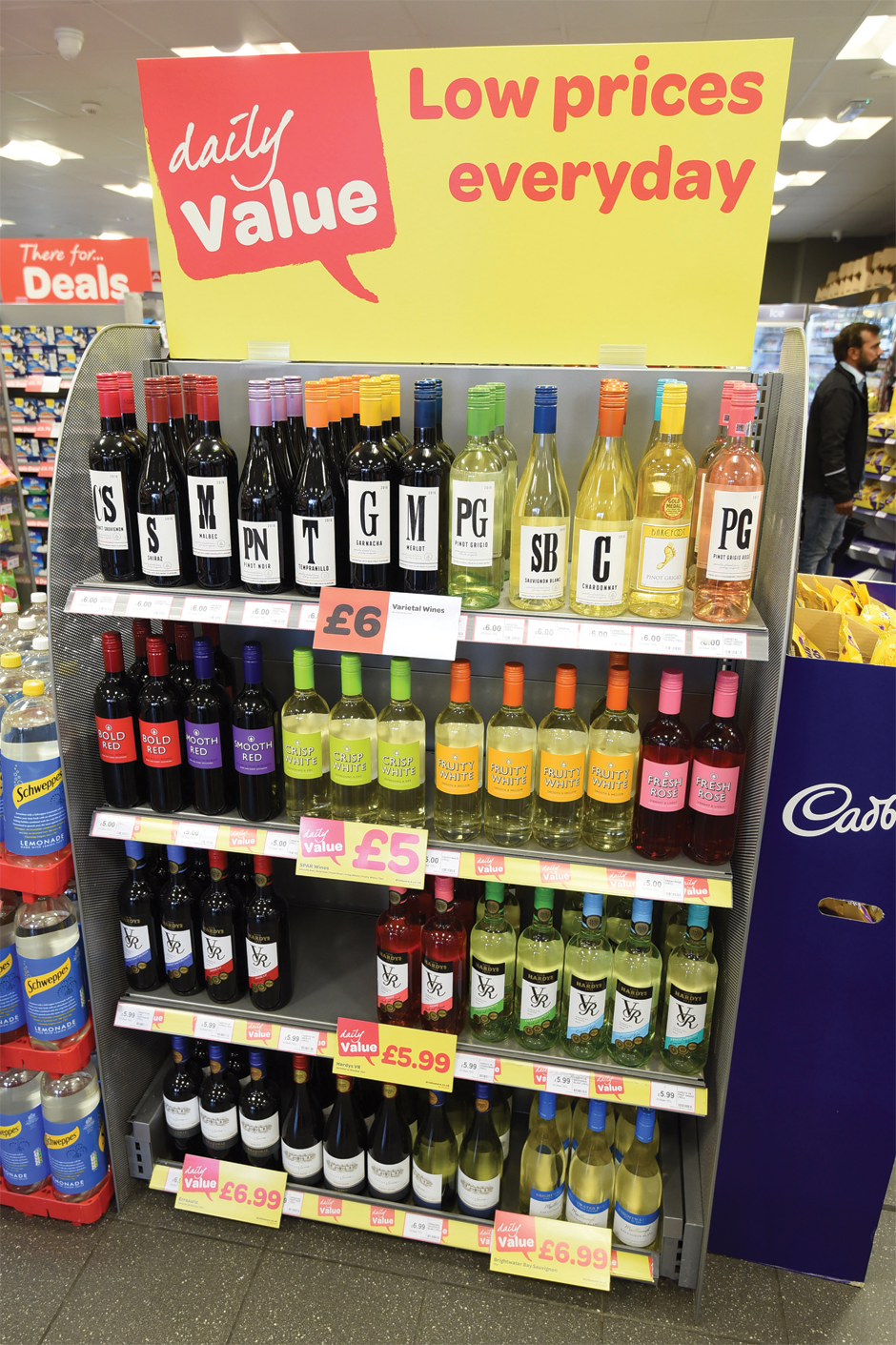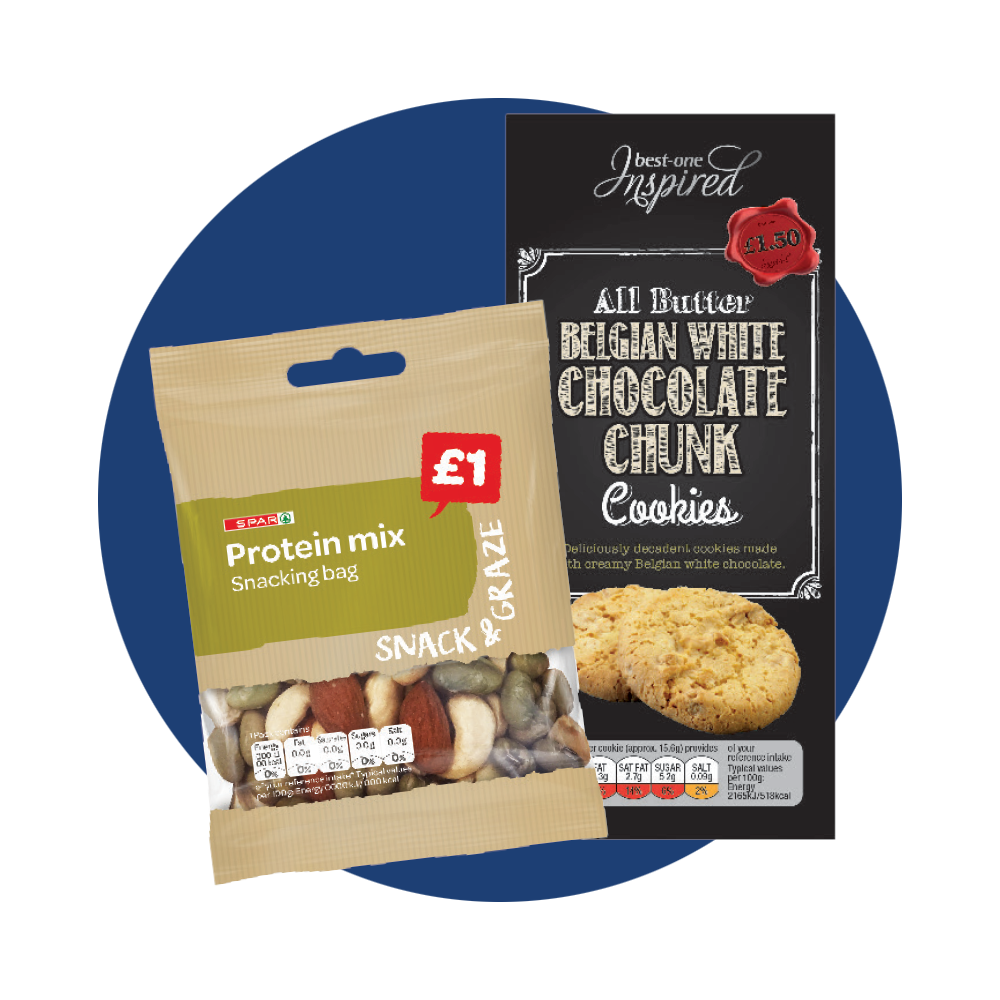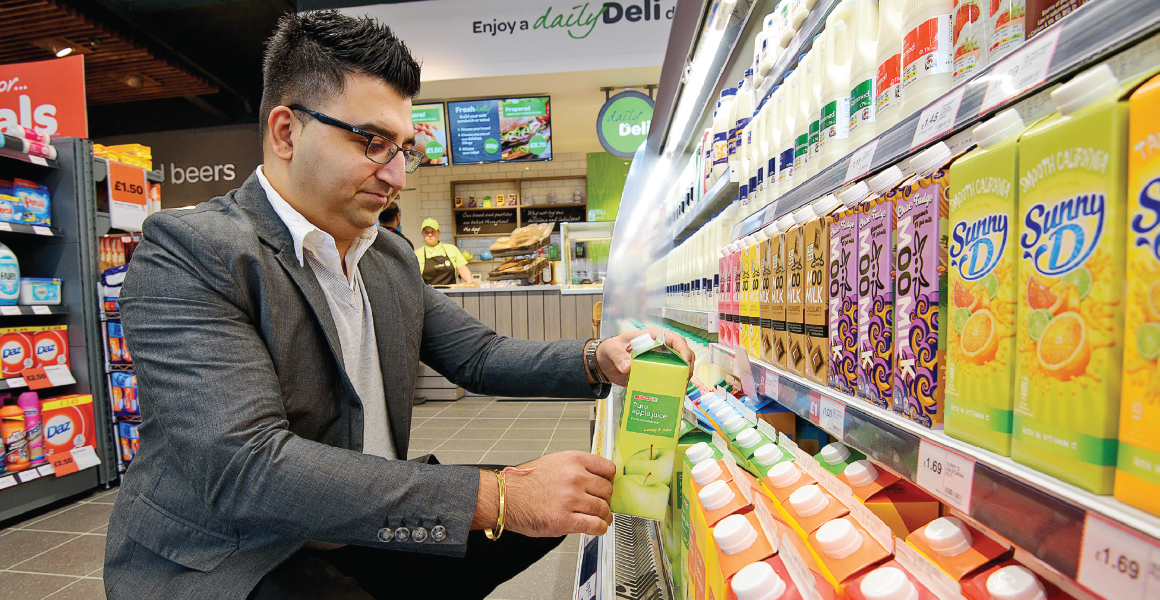With own-label products not just accepted, but actively sought after by today’s shoppers, Toby Hill finds out how you can challenge the discounters and cash in

quality Malbec for £6.99
Convenience retail can feel like a battleground, and more often than not, there’s something David and Goliath about the conflict, as small independent stores face up to the massive buying power of the multiples.
These days, it’s tougher than ever: store owners don’t just have to take on traditional supermarkets, they also face stiff competition from the discounters. Stores such as Lidl and Aldi have experienced huge growth over the past decade, triggered by the financial crash of 2007-08.
But sometimes adversity brings opportunity in its wake. The discounters, with 80% of their stock own label, have given people far more confidence in own-brand products across the grocery sector. They’ve spearheaded a major shift in buying habits, where old-brand loyalties have begun to fray and people are increasingly willing to trust their own judgement on the products they buy.
“Own-label sales are buoyant as consumers now value own-label products as quality alternatives to brands, rather than solely cheaper versions,” says Ed Smeaton, director of trading at Bestway. “Previously, own label was confined to dry goods and packaged grocery. We are now seeing innovation in own label across grocery, fresh and chilled and food to go, which are real convenience drivers for shoppers.”
Cross-demographic appeal
These changes are being felt in stores across the UK, with retailers reporting dramatic growth in their sales of own-brand products.
“Our own brand is just as competitive as the big brands these days: we sell more own-brand biscuits than we do McVitie’s,” says David Ramsey, owner of Best-one Knottingley. “Aldi and Lidl really kicked it off and it’s had a knock-on effect in our shop.”
One notable aspect of this shift has been the growth in more affluent customers also choosing to buy own brand, which is no longer seen as a purely economy option.
“We’re in an affluent area – there’s a local baker selling bread for £3 and over – and we avoided own brand for years,” says Robert Madden, owner of Costcutter R & D Hardy in Chorlton-cum-Hardy, Greater Manchester. “But over time we added more lines. It started slowly, but people gradually came to trust it. Now we find it sells as well as branded lines.”
Aldi and Lidl really kicked it off and it’s had a knock-on effect in our shop
Premium own brand
To meet this expanding demand for own-brand products, manufacturers have dramatically expanded their offering. As own brand is no longer synonymous with budget, new premium labels, such as Bestway’s Best-one Inspired or Booker’s Discover the Choice, are seeing great success.
The growth of premium own label expands retailers’ ranging options, helping them tailor their store to the local area. Chris Herring, owner of Londis Shiphay Post Office in Torquay, thinks carefully about which products work best under what he broadly classifies as economy (Happy Shopper) and premium (Discover the Choice) Booker own-label lines.
“Everyday goods that people replace frequently work well as Happy Shopper, but with more luxury items that last a while, people want something nice,” he says. “For example, Happy Shopper has a jam for 99p, but I think it would work better as Discover the Choice – people aren’t buying jam every day.”
Meatier margins

both value and premium shoppers
This growth in own label is good news for retailers: more often than not, own-label products offer better margins than their branded equivalents.
“It’s in our interest to sell own label, as we get better margins and make more money,” says Baz Jethwa, owner of Spar The Rocket in Bolton. “Plus, it supports our brand and helps build confidence in our store.”
Margins are also generally better on Booker’s own-brand products, Herring adds.
“Usually with own label we can hit 30% POR, which is 10% to 15% more than on branded products,” he says. “People don’t necessarily want the cheapest products, but they do want value. Ultimately, that’s what they feel own brand offers – better value for money.”

Symbol group tips
Ed Smeaton
Director of trading
September sees the first anniversary of the Best-one own-label brand after replacing Bestway’s former Best-in offer for retailers. Uptake of the brand has been incredibly positive. Since the introduction of Best-one, own-label sales have gone from a decline of 12% to an increase of 15% – a growth swing of 27%.
Alongside the chilled, frozen and ambient Best-one ranges, we now offer Best-one Inspired, which is our premium range and is driving new opportunities for our retailers. There is an ever-growing trend of consumers trading up and Best-one Inspired offers retailers the chance to take advantage of this and drive sales and footfall.
Since shoppers are searching for, and becoming increasingly loyal to, own label, retailers should make provision for it across all categories. Too many retailers stock the brand leader, but also tertiary brands, which is unnecessary. Duplication of tertiary brands only clutters shelves and adds confusion for the shopper. It is better to rationalise the range with the brand leader double-faced, where appropriate, and then offer a value alternative in own label beside it.
Ensure that you utilise PoS material to promote own label and not just the big brands. Offer link deals including own label, which allow you to hit a price point that will resonate with shoppers and increase basket spend.





Comments
This article doesn't have any comments yet, be the first!